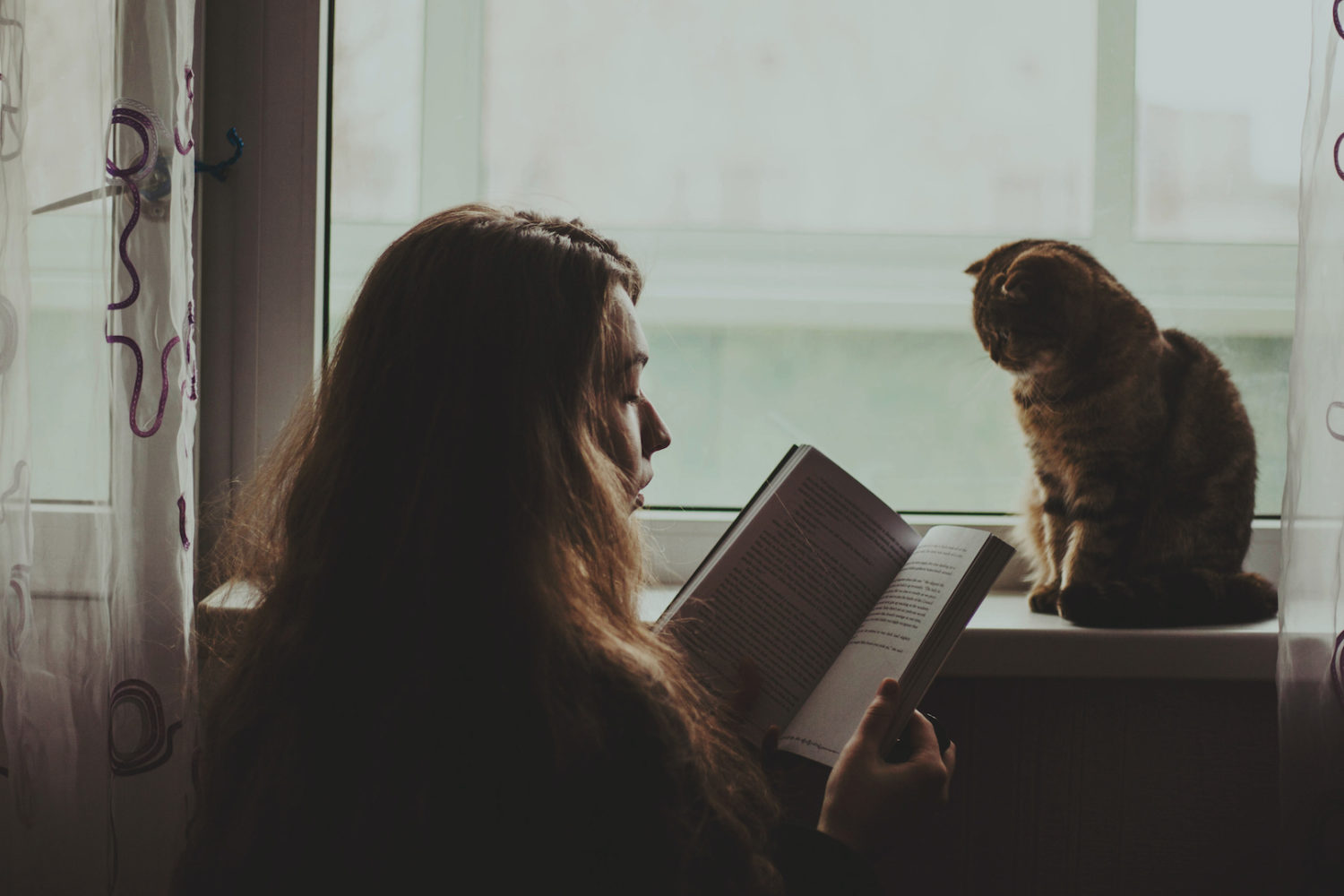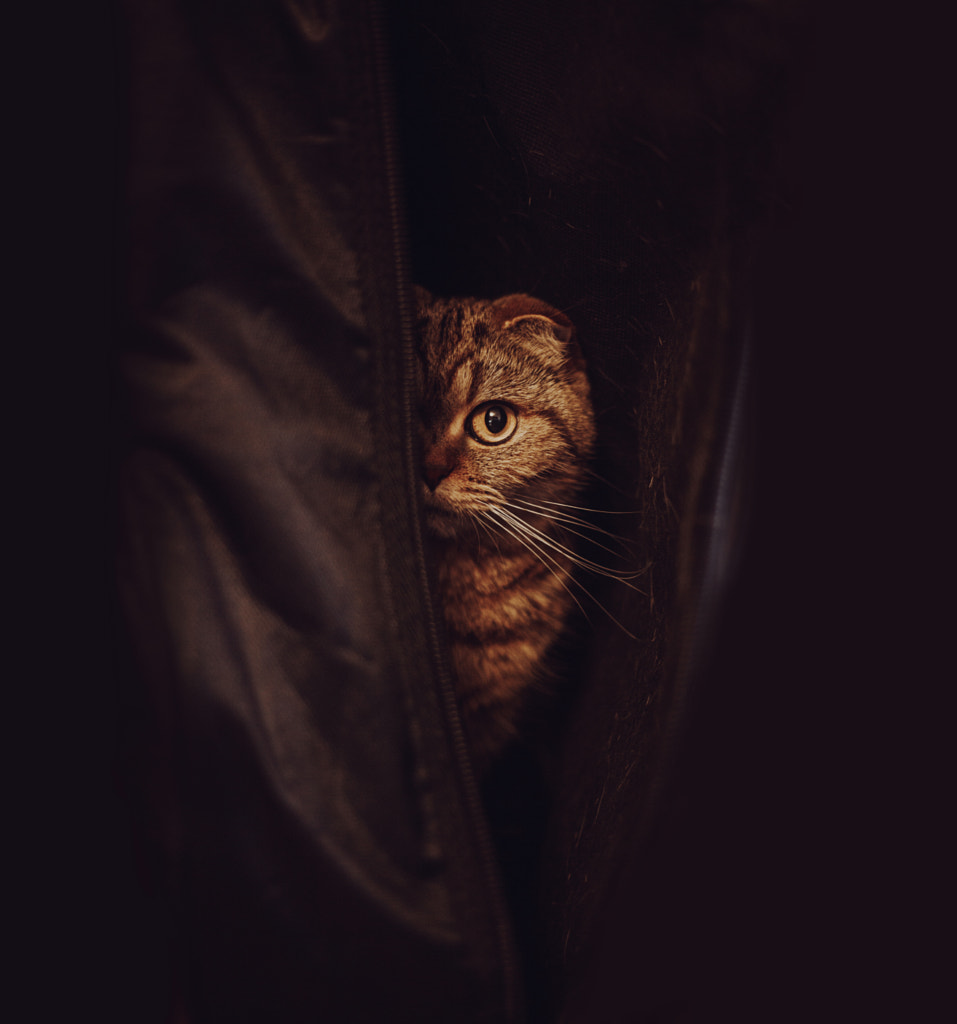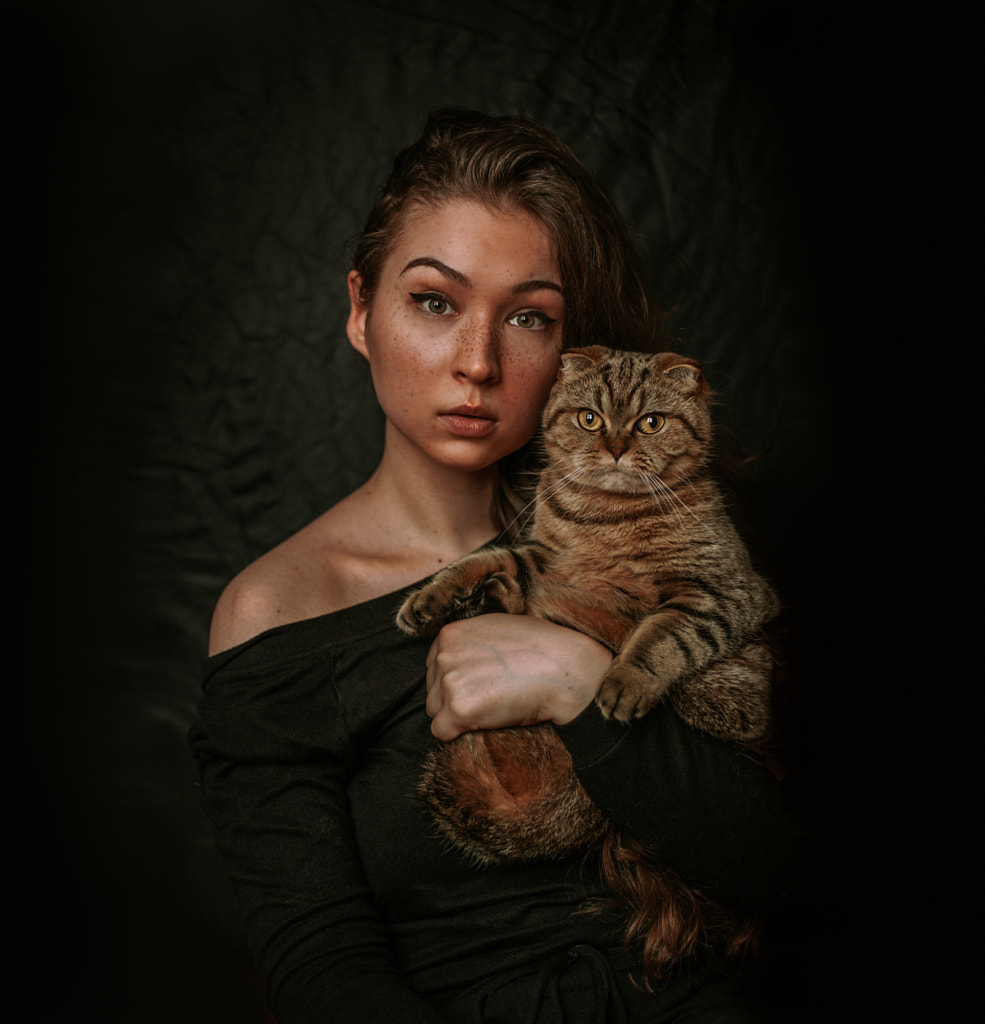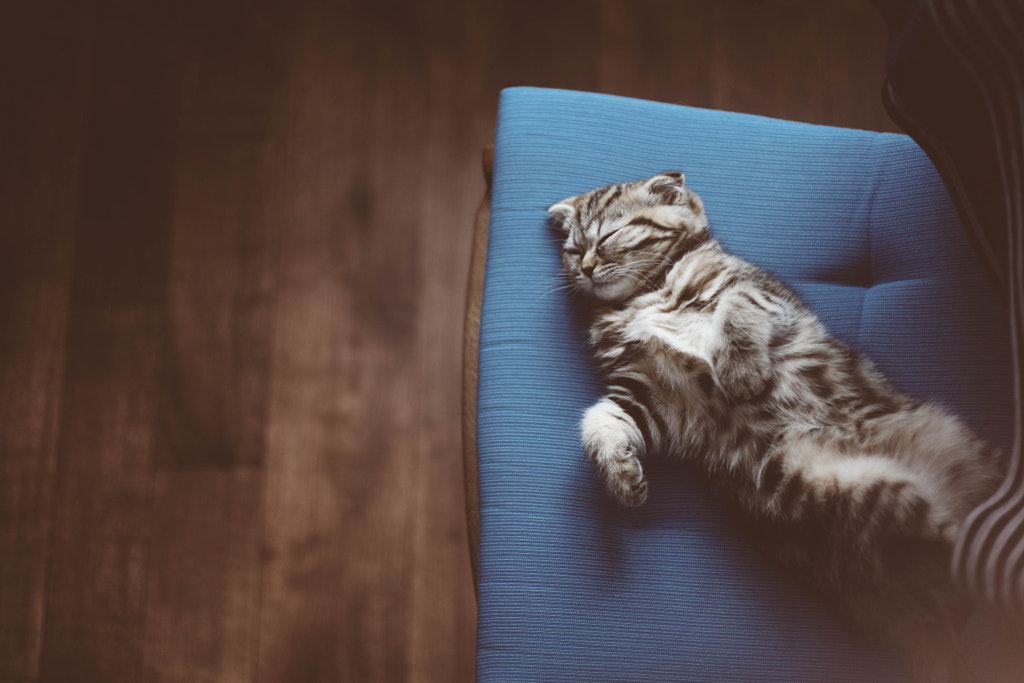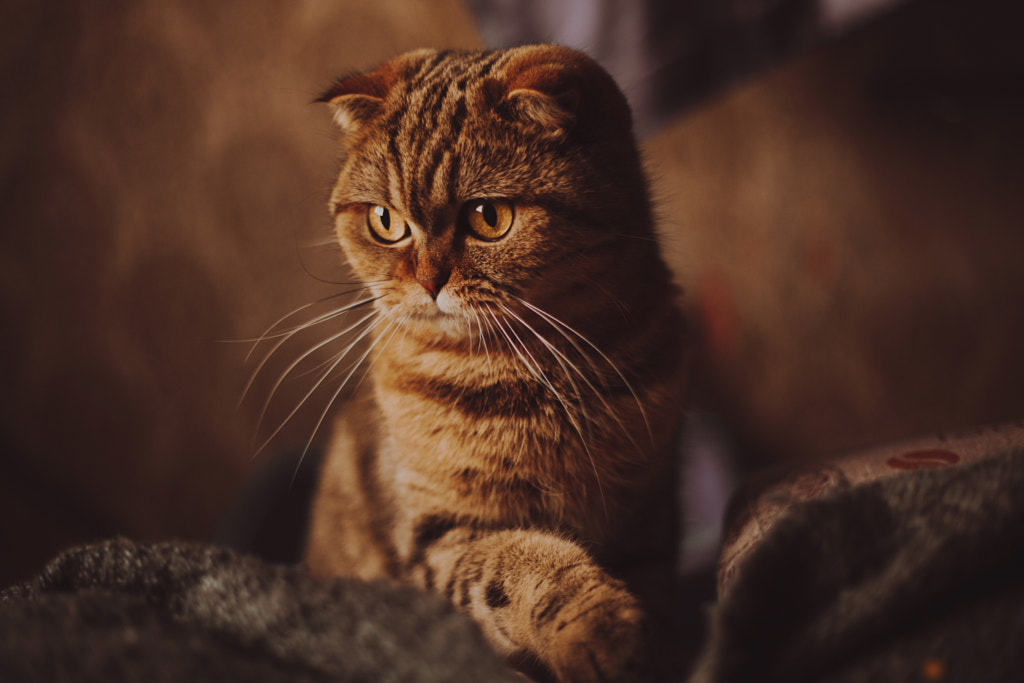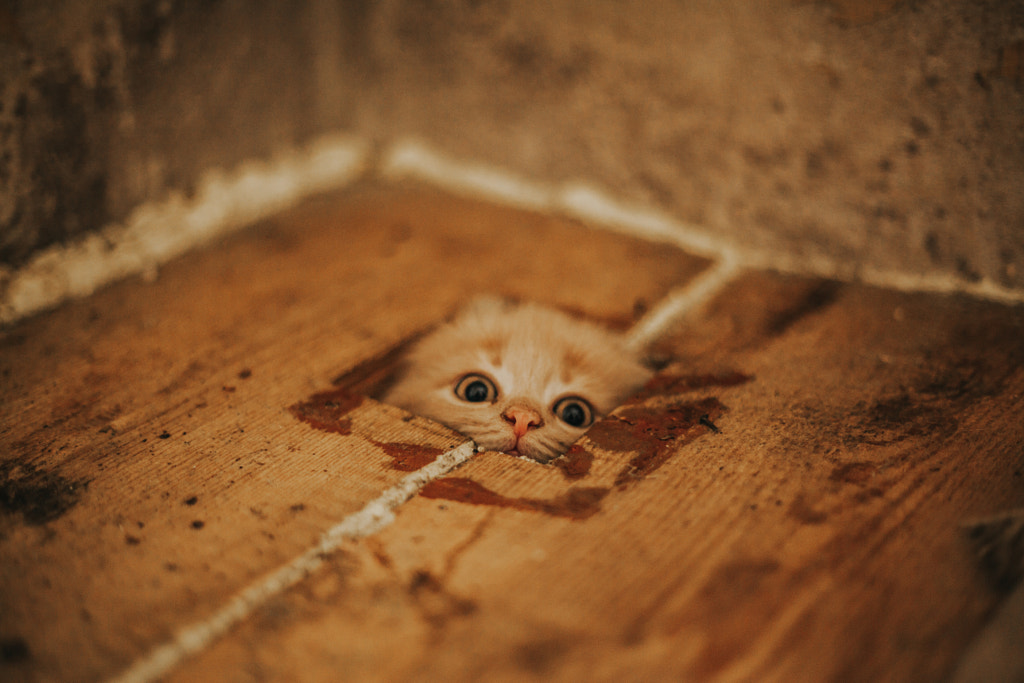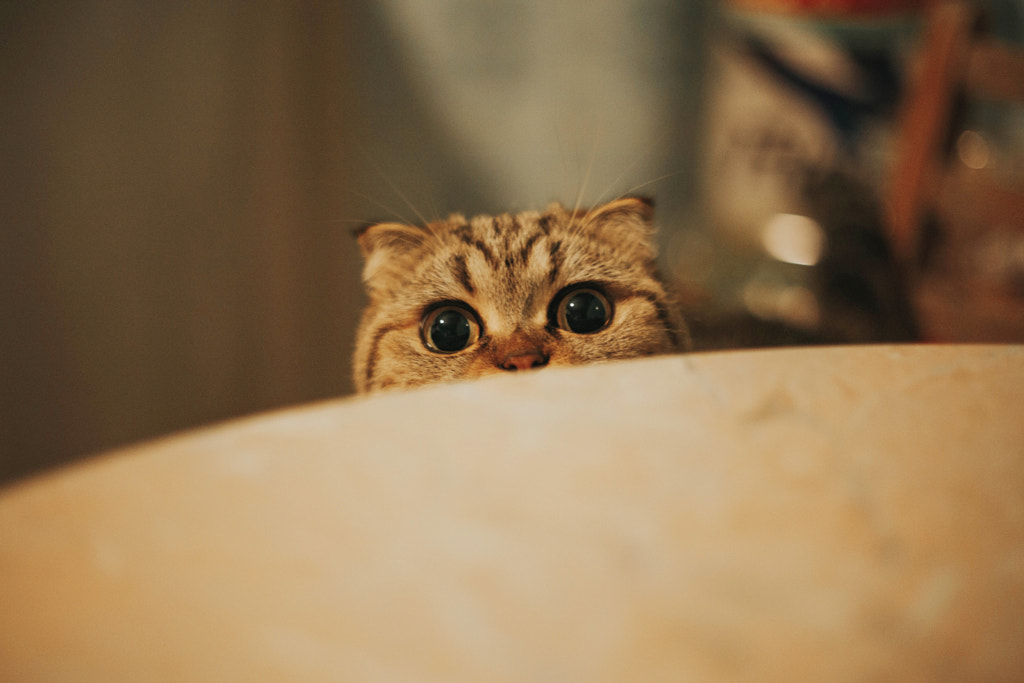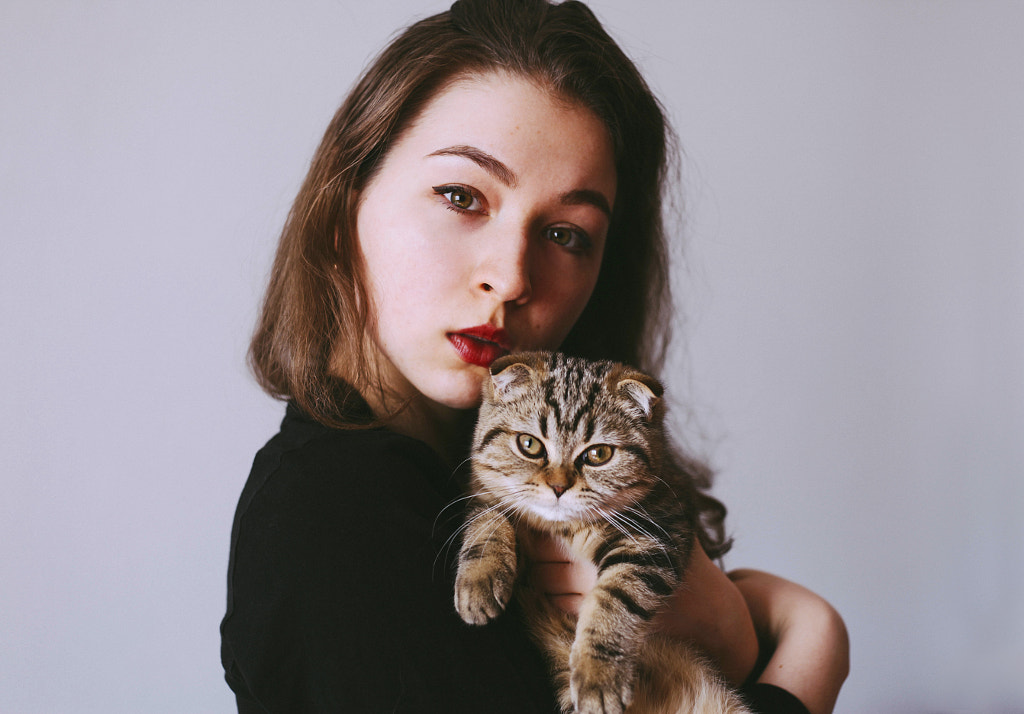This tutorial is part of the “No Place Like Home” Campaign. We’ve partnered with some of our Licensing contributors to create these “conscious living” tutorials and Quests to encourage you to pick up your camera, maybe learn a new skill, and continue to do what you love despite these difficult times.
This tutorial was created by Taya Iv, a top Licensing Contributor based in Belarus. She is well known for creating beautiful self-portraits that elicit strong emotions from viewers.
We want to see your pet photography skills! So sharpen your skills and submit your pet photos to the Pets at Home: Cats Quest and you could win $100 US.
I take a lot of photos of pets. My favorite model is my cat Mimi, who’s equally photogenic and stubborn. It can be challenging to take photos of your cat, especially when the lighting isn’t ideal and you can’t go outside.
I know this is something that many cat owners struggle with—how do you take professional photos of your cat without ending up ignored or scratched? Is it possible to make your pet look flattering when you’re working with simple indoor lighting? The answer, of course, is yes!
I want to share a few simple but effective tips that can help you elevate your cat photography.
Contents
- 1 Catch the cat’s attention with their favorite toy, bed, or treats
- 2 Use lasers or food to direct your cat’s gaze
- 3 Put their favorite bed next to a large window
- 4 If your cat is jumpy, use a silent shutter
- 5 Use a fast shutter speed and a high ISO for action photos
- 6 Use limited light to make your cat look extra adorable
- 7 Shoot for a few minutes at a time
Catch the cat’s attention with their favorite toy, bed, or treats
You probably know your pet better than anyone else. Think of their quirks, likes, and dislikes. Where is their favorite place to sleep? When are they the least grumpy? The stranger the quirk, the more interesting your photos will turn out!
For example, my cat loves my guitar bag. She instantly runs up to me when I unzip it. No matter where I put it, she’ll jump in and get comfortable. This gives me room for a lot of beautiful photo opportunities.
Don’t force your cat to do anything. Create opportunities for them so they can forget that the camera is even there. If they’re in a natural and familiar environment, they will feel much more comfortable in the presence of a camera.
Use lasers or food to direct your cat’s gaze
Since pets can’t always be directed, it’s difficult to make them look straight at the camera. Again, this is where your expert pet knowledge comes in! Does your cat react positively to certain noises or movements? Use this to your advantage to naturally direct your cat’s gaze.
Try having someone point a cat-friendly laser pointer somewhere around your lens or even dangle a treat directly above the lens. (No matter what kind of laser you use, don’t point it at your cat’s eyes or body. Avoid reflective surfaces, too!)
Put their favorite bed next to a large window
My cat has several beds that she favors depending on the season. Yours probably has a favorite spot as well. If it’s a portable bed, move it closer to a window. This will give you lots of opportunities to take photos while your pet rests or sleeps.
Natural window light is perfect for soft pet portraits. If your pet faces the window, even better! You’ll be able to take advantage of natural highlights and shadows. Both of these look very flattering in both pet and portrait.
If your cat is jumpy, use a silent shutter
This is also a tip to keep in mind if your cat is resting or sleeping. If your camera isn’t intrusive, your pet is likely to have positive associations with it.
A silent shutter isn’t always an option. If yours is very loud, try shooting from a distance. You can use a zoom lens to give your cat some extra space.
Use a fast shutter speed and a high ISO for action photos
If your cat is active, you can take lots of eye-catching action photos of them on the move. You can play with them yourself or ask an assistant to do the work for you. Switch to a fast shutter speed so that every detail is sharp in your final results.
Let’s talk about ISO numbers for a second. The bigger they are, the more noise they add to your photos. Scary, right? Not really. Most of today’s cameras can process high ISO numbers without damaging the results. Avoid very high numbers, but don’t be afraid to move up sometimes.
A fast shutter speed and a high ISO will let you take sharp and well-lit photos indoors. Also, a large aperture (e.g. f/2.0) can also help you capture more light.
Use limited light to make your cat look extra adorable
Cats look unbelievably cute in the dark because of their dilated pupils. The less light there is, the more intense their eyes will look. If you surprise them with a treat during your photoshoot, they’ll basically look like Puss in Boots from Shrek.
Limited light isn’t as challenging as it sounds. As I mentioned previously, it’s okay to use an ISO number that’s higher than what you’re used to. Overcoming the fear of photo noise can help you take very, very adorable photos of your cat.
You can use simple artificial light to control the lighting in your photoshoot. A small lamp can make a big difference. Point it in different directions to see which angle makes your cat look the most flattering.
To catch your cat’s attention, give them a few treats or play with them.
Shoot for a few minutes at a time
Cat photography requires a lot of patience and understanding. If you notice your pet losing interest in your presence, put your camera away. I know this can be frustrating, especially if you’re about to get a great shot, but it’s a fantastic way to strengthen your patience.
Slowly introduce your camera to your pet. You can shoot every day, but make sure you limit your photoshoots to a maximum of 10-20 minutes. Even though my cat is still sassy and stubborn, she seems to enjoy being in front of the camera because I don’t intrude.
Last but not least, make sure you reward your pet at the end of your photoshoot!
Cat photography doesn’t have to be difficult and doesn’t have to end with painful scratches on your arms and face. If you approach it with curiosity and patience, you’re likely to get a lot of beautiful shots in the process.
Make sure you experiment with different lighting setups (no expensive equipment necessary), angles, and rewards. The more photos you take, the closer you’ll get to getting that incredible shot you’ve always dreamed of adding to your portfolio.
You might also like these articles:
Everything You Need To Know About Taking Awesome Dog Photography
Everything You need to know about Cat Photography
24 Beautiful Black and White Portraits That Will Win Your Heart
